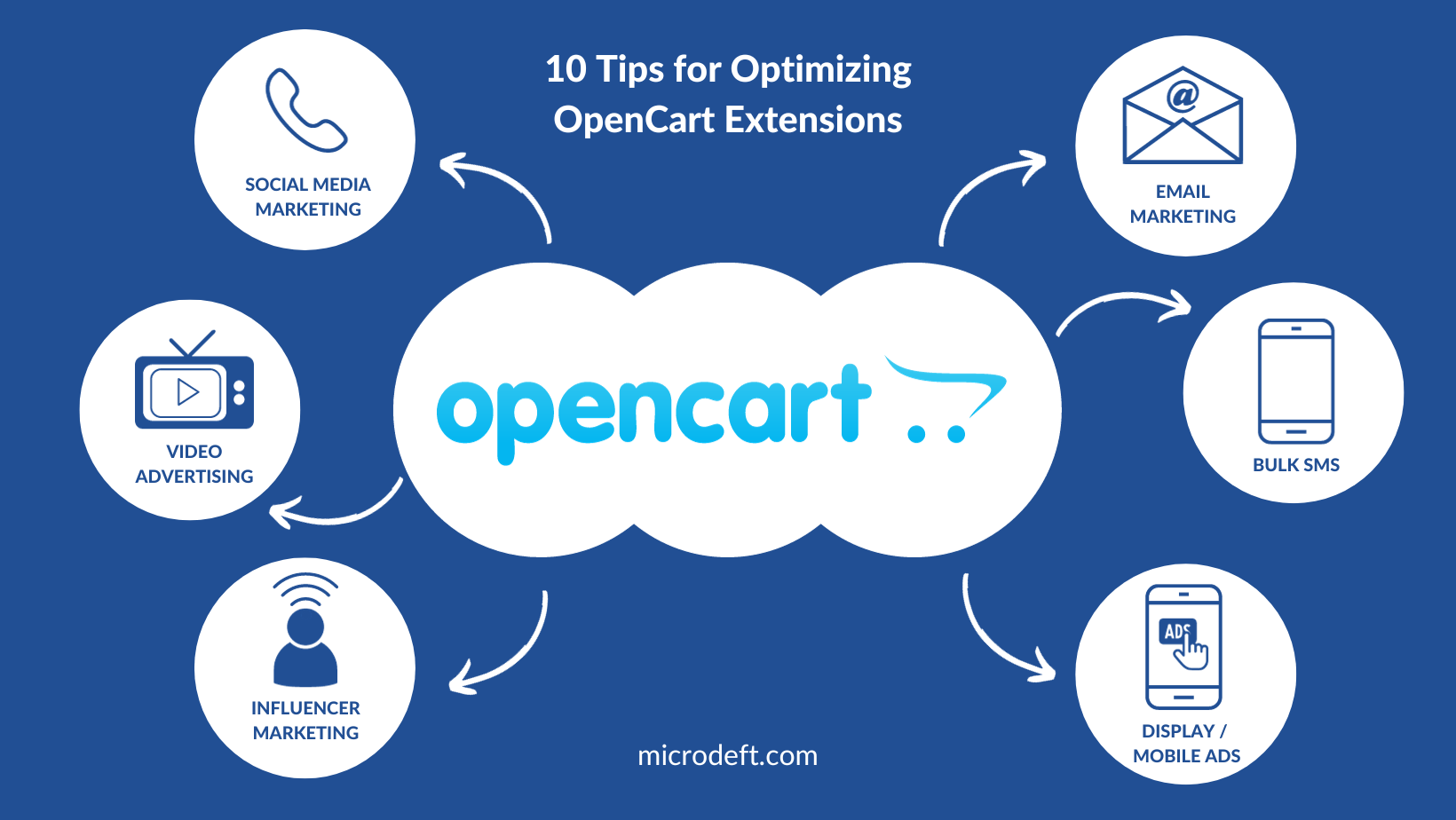Table of Contents
Toggle10 Tips for Optimizing OpenCart Extensions Enhance Your OpenCart Store’s Performance
OpenCart is an open-source eCommerce platform that is widely used by businesses of all sizes. It is a powerful and flexible platform that can be customized to meet the needs of any business. However, like any software, OpenCart Extensions can be slowed down if it is not properly configured and maintained. One of the biggest contributors to slow page load times in OpenCart is extensions. Extensions are add-ons that provide additional functionality to OpenCart Extensions stores. While extensions can be very useful, they can also add a lot of code to your store, which can slow things down.In this blog post, we will discuss 10 tips for optimizing OpenCart extensions:
Tip 1: Choose the Right ExtensionsNot all extensions are created equal. Some extensions are well-coded and will not impact your store’s performance, while others are poorly coded and can slow down your store significantly. Take some time to research each extension before you install it. There are many resources available online that can help you learn about the performance of different extensions.
Tip 2: Install Only the Extensions You NeedIt can be tempting to install every extension you come across, but it is important to resist this temptation. Only install extensions that you actually need and use. Installing too many extensions can slow down your store and make it difficult to manage.
Tip 3: Keep Your Extensions Up to DateDevelopers are constantly releasing updates to their extensions to fix bugs and improve performance. Make sure to keep your extensions up to date to ensure that they are not causing any performance issues.
Tip 4: Disable Unnecessary FeaturesMany extensions have features that you may not need or use. Disabling these features can help to improve performance. To disable unnecessary features, you will need to access the extension’s settings. The location of the settings will vary depending on the extension.
Tip 5: Use a Cache ModuleA cache module will store frequently accessed data in memory, which can help to speed up your store. There are many different cache modules available, so do your research and choose one that is compatible with your OpenCart Extensions version.
Tip 6: Optimize Your ImagesImages are one of the biggest contributors to slow page load times. Make sure to optimize your images for the web before uploading them to your store. You can use a tool like ImageOptim to optimize your images.
Tip 7: Use a CDNA CDN (Content Delivery Network) will distribute your store’s content across a network of servers, which can help to improve performance for visitors from around the world. There are many different CDNs available, so do your research and choose one that is right for your needs.
Tip 8: Use a Performance-Focused ThemeYour store’s theme can also impact performance. Choose a theme that is designed for performance and that does not use a lot of unnecessary code or images.
Tip 9: Use a Hosting Provider That Can Handle Your TrafficIf your store is getting a lot of traffic, you may need to upgrade to a hosting provider that can handle the load. There are many different hosting providers available, so do your research and choose one that is right for your needs.
Tip 10: Monitor Your Store's PerformanceIt is important to monitor your store’s performance on a regular basis to identify any potential issues. There are many different tools available to help you monitor your store’s performance, such as Google PageSpeed Insights and GTmetrix.
ConclusionBy following these 10 tips, you can help to ensure that your OpenCart extensions are not slowing down your store. This will help to improve your store’s performance and provide a better experience for your customers. Please note that these tips are just a starting point. There are many other things you can do to optimize your OpenCart extensions. The best way to find out what works best for your store is to experiment and test different options.
FAQ
OpenCart is a popular open-source e-commerce platform that can be a great choice for businesses of all sizes. It is easy to use, has a large community of users, and is very flexible. However, there are a few things to consider before deciding if OpenCart is the right platform for your business.
Optimizing OpenCart with extensions can significantly improve your store’s performance, enhance user experience, and boost sales.
- Choose the Right Extensions
- Install Only Essential Extensions
- Keep Extensions Up to Date
- Disable Unnecessary Features
- Utilize a Cache Module
- Optimize Images
- Consider Using a CDN
- Choose a Performance-Oriented Theme
- Upgrade Hosting Provider if Needed
- Regularly Monitor Performance
It’s difficult to determine the exact number of businesses using OpenCart as there’s no official data source tracking this information. However, based on various estimates and industry reports, it’s believed that OpenCart powers around 3-5% of all e-commerce stores worldwide. This translates to hundreds of thousands of businesses using OpenCart to manage their online stores. Accordion to google at present, there are 227,493 live stores running on the OpenCart platform.






